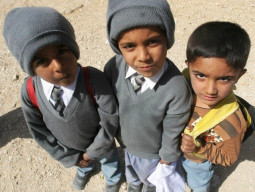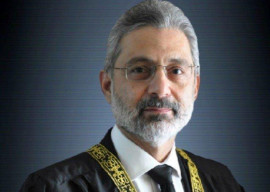
Mandatory ethical review of research involving human and animal subjects, though gradually taking root in Pakistani institutions, still faces several challenges, some of which threaten the very credibility of research conducted in the country, experts noted at a workshop organised at the University of Health Sciences (UHS) on Monday.
The workshop on The Establishment of Institutional Bioethics Committees was organised by the UHS in collaboration with the Pakistan Medical Research Council (PMRC).
PMRC Executive Director Dr Huma Qureshi said the lack of monitoring mechanism, interference from institutional hierarchy, and an inconsistent application of the ethical review process are some of the major factors affecting the credibility of medical research in the country.
“In order for the review process to be meaningful, institutional leadership has to be sincere in its efforts to constitute independent bioethics review committees which should be allowed to function without any hindrance,” she said.
Qureshi also emphasised the need for basic training in research ethics for reviewers, researchers and administrators. “Though advances in the field of modern medicine have brought immense benefits, they have also increased the potential for harm. This requires stringent guidelines and mechanisms.”

UHS Vice Chancellor Maj Gen (r) Prof Muhammad Aslam said in the absence of a proper system for ethical clearance, local researchers seeking international funding faced problems in getting the required ethical clearance for their projects.
“Every medical institution in the country needs to develop standards, processes and guidelines for scrutiny of health research in the country in order to protect people from harm and exploitation in the name of research,” he stressed.
Aslam further said that institutional ethics review committees had multifaceted roles with regards to research on human subjects, the right to life, the right to abortion, the right to be a surrogate mother, doctor-patient relationship, cloning, gene therapy, sperm donation, donation of organs, the pharmaceutical industry, and medical publications.
Sports Week
UHS’s second annual sports week kicked off on Monday morning. More than 300 postgraduate students, faculty and staff members will be taking part in the sports gala that will end on March 21. The inauguration ceremony began with a march-past, the sports day oath and an athletics meet. Hundreds of colourful balloons and pigeons were released. Indoor sports events including luddo, carom-board, chess, table tennis, darts and scrabble were held.
VC Muhammad Aslam said sports helped students become better human beings and taught tolerance and encouraged competitiveness. He said sportsmanship was more important than winning an event.
Published in The Express Tribune, March 18th, 2014.


































COMMENTS
Comments are moderated and generally will be posted if they are on-topic and not abusive.
For more information, please see our Comments FAQ